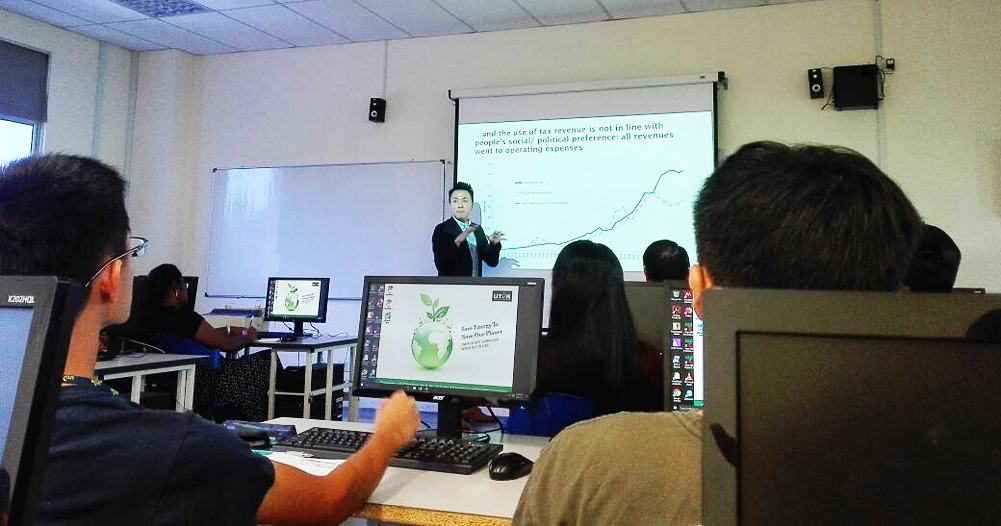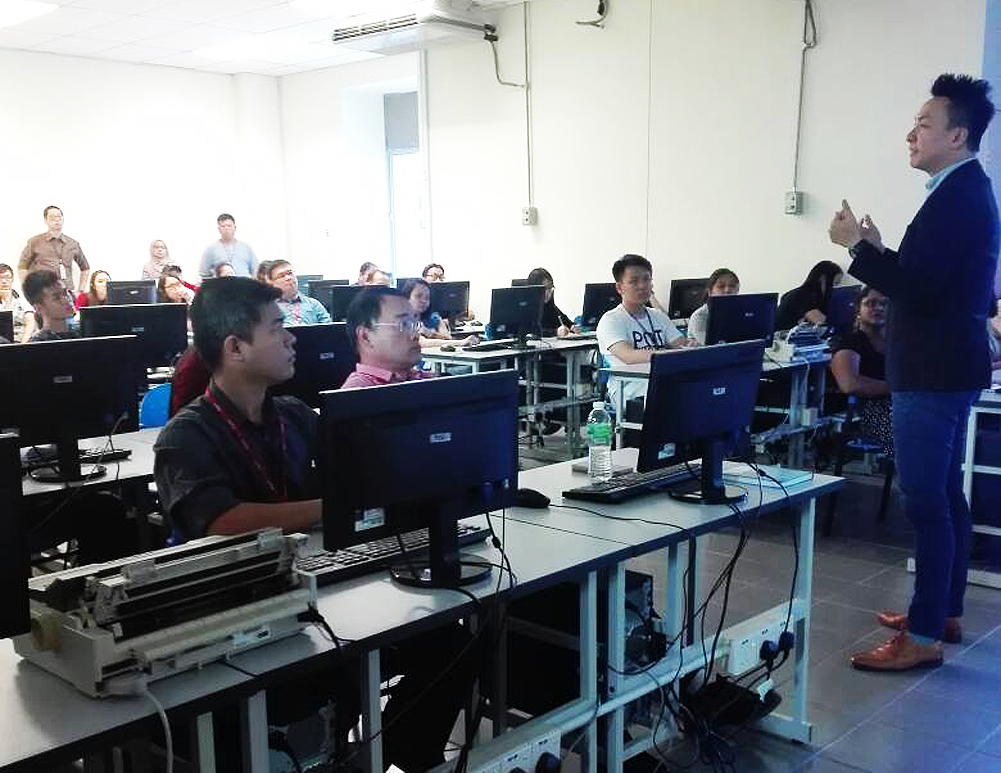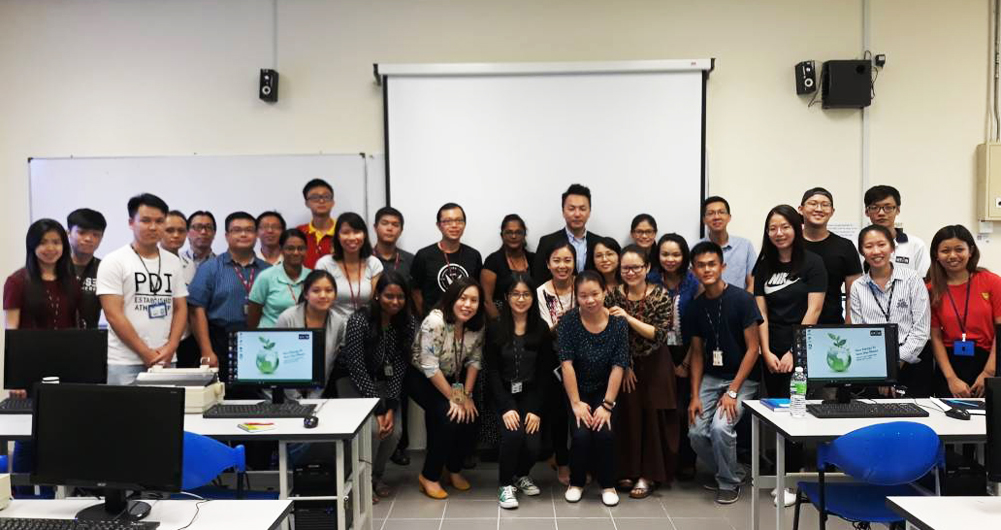
The Centre for Economic Studies (CES) under the Faculty of Business and Finance (FBF) organised a research talk titled “Good-bye GST, Hello SST for Malaysia— How to make SST work?” on 8 June 2018 at Kampar Campus.
The talk was delivered by FBFDepartment of Economics Assoc Prof Dr Wong Chin Yoong. Present at the talk were Chairperson of CES Dr Foo Chuan Chew, FBF Deputy Dean for R&D and Postgraduate Programmes Dr Lau Lin Sea, FBF Head of Commerce and Accountancy Department Dr Zam Zuriyati binti Mohamad, FBF Head of Economics Department Thavamalar Ganapathy and academic staff. The talk aimed to highlight the difference between Goods and Services Tax (GST) and Sales and Services Tax (SST).
At the talk, he explained the credit-invoice-method items and GST, which is commonly considered as an extra efficient tax device vis-à-vis income. He also gave an explanation about the SST, which permits input tax refund that removes cascading effects. He further explained the reasons why Malaysians are unable to adapt to the application of SST. He also pointed out that the flow of tax revenue and operating expenses are not in line with the people’s social or political preferences. As a result of that, his understanding concluded that it was that reason that led the newly elected government to make the promise on having the GST replaced with SST, thus making Malaysia the first country to reverse its tax reform. According to his analysis, if the SST is able to maintain the input tax credit score mechanism, SST would be a welfare that is equal to the GST, otherwise, SST can be reintroduced at the side of pro-employment coverage. He also further explained the seriousness of Malaysia’s debt by comparing it with the neighbouring countries.
In addition to his analysis, payroll subsidy, for instance, eases enterprise’s value burden, at the same time, promotes the hiring of high-ability labours that strengthens productivity at no price of government tax sales. He emphasised that labour productivity is also an important aspect of the welfare development and suggested the government to increase the productivity and maintain a strong currency and household balance sheet to make SST work. He hopes for the government to conduct continuous policy reviews that would help ensure the successful application of SST. The talk then ended with an interactive Q&A session.
Dr Wong Chin Yoong was a visiting research fellow at the Stockholm China Economic Research Institute in Stockholm School of Economics. His research works often highlight the intertwined issues in international macro, trade and finance, development economics, environmental economics, and political economics in macroeconomic models with policy orientation. Besides, he has published international reputable journals such as Economics Letters, China Economic Review, Economic Modelling, International Review of Economics and Finance, Review of Development Economics, Economic Systems and North American Journal of Economics and Finance, to name a few. He has appeared regularly on media as a guest speaker and commentator. He has been consulted for academic inputs from private and public entities.

Dr Wong explaining the use of tax revenue and people social/political preference

Dr Wong explaining the importance of labour productivity

Dr Wong (second row, fifth from right) with the participants
© 2019 UNIVERSITI TUNKU ABDUL RAHMAN DU012(A).
Wholly owned by UTAR Education Foundation Co. No. 578227-M LEGAL STATEMENT TERM OF USAGE PRIVACY NOTICE